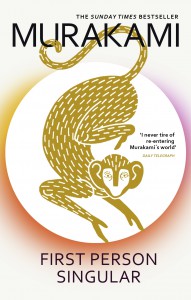2023’s first installment of A Thousand Lives takes us back in time (as far back as 1966) to unearth gems from around the world that some of us may have overlooked. Tackling topics ranging from colonialism to women’s place in society, they are as relevant today as when they first saw light of publication. Join our editors-at-large as they open three fabulous time capsules!
Originally published in 1975 and first translated from the Arabic into English by Sherif Hetata in 1983, Woman at Point Zero, one of Nawal El Saadawi’s most well-known novels, sadly remains relevant as ever. In the preface, she writes that the book is based on a real woman, a true story seemingly down to the name Firdaus. The frame narrative is that of a journalist, a stand-in for Saadawi, who has been unsuccessfully trying to talk to Firdaus and is finally able to meet her the night before her slated execution. The framed narrative is Firdaus’s story: her traumatic childhood, how she became a prostitute, and why she is now on death row. While it’s certainly tied to a specific time and place for Arab women in Egyptian society, the novel is an indictment of patriarchy at large everywhere. The issues that Saadawi explores—the subjugation of women, women as goods, the hypocrisy of men, men as consumers, state and power, money—have not been resolved almost half a century after it first came out. There is a surprising immediacy, made all the more apparent by the pulsating prose. Here’s the portrait of a woman who has fatally unveiled society’s ugly truths. Buy a copy here.
–Areeb Ahmad, Editor-at-Large for India
Tayeb Salih was a Sudanese author, cultural journalist, and key figure in the Sudanese literary scene. Published in 1966, his most famous novel—Season of Migration to the North—was translated from Arabic by Denys Johnson-Davies. In a distinctive style, oscillating between a trenchant and a dreamy timbre, Salih tells the story of a young Sudanese man returning to his home village to find the people he’d grown up with succumbing to the charms of a mysterious stranger. The secretive newcomer develops a kinship with the protagonist, having shared a similar past—both had left their native land to study in England—and reveals his troubling biography, adumbrated by a series of dangerous games of seduction and violence. The stranger’s presence in the village is all but benign: soon, events of unprecedented brutality begin to take place, leaving the protagonist to observe powerlessly as his homeland falls apart. Now translated into more than 30 languages, Season of Migration to the North explores themes of exoticism and authenticity, growth and revenge, as well as delving deep into the complicated interplay between colonizer and colonized, on the individual and collective scale. Buy a copy here.
—Sofija Popovska, Editor-at-Large for Macedonia
While exploring the shelves of an independent bookstore in a Middle Eastern country, I stumbled upon an unknown, probably only to me, collection of short stories by Haruki Murakami. The volume in question was First Person Singular (Knopf, 2021), translated from the Japanese by Philip Gabriel. Having read most of Murakami’s works, I was sincerely surprised to discover that this one had evaded my attention to the point that I even imagined I had been delegated a role in the author’s bizarre universe and had just awakened to the uncanny feeling that something was off with the world I was used to. All eerie comparisons aside, the book exposes stereotypical concepts such as beauty, wealth, or even talent and turns them upside down. Music, as usual, is its own character—an observation confirmed by the edition’s peculiar design. The double cover’s inner side presents us with an image of the elusive vinyl Charlie Parker Plays Bossa Nova. The list of song titles, possibly hinting at the tales to follow, marks the beginning of a literary journey filled with perplexing riddles. “How do you visualize a circle with many centers?” and “Since when do monkeys have favorite composers?” are only a couple of the questions we are confronted with, while the narrator is trying to convince us that, more often than not, the answers are simply superfluous. Buy a copy here.
–Andriana Hamas, Editor-at-Large for Bulgaria
*****
Read more on the Asymptote blog:
- A Thousand Lives: Staff Reads from Around the World (August 2022)
- A Thousand Lives: Staff Reads from Around the World (June 2022)
- A Thousand Lives: Staff Reads from Around the World (May 2022)




